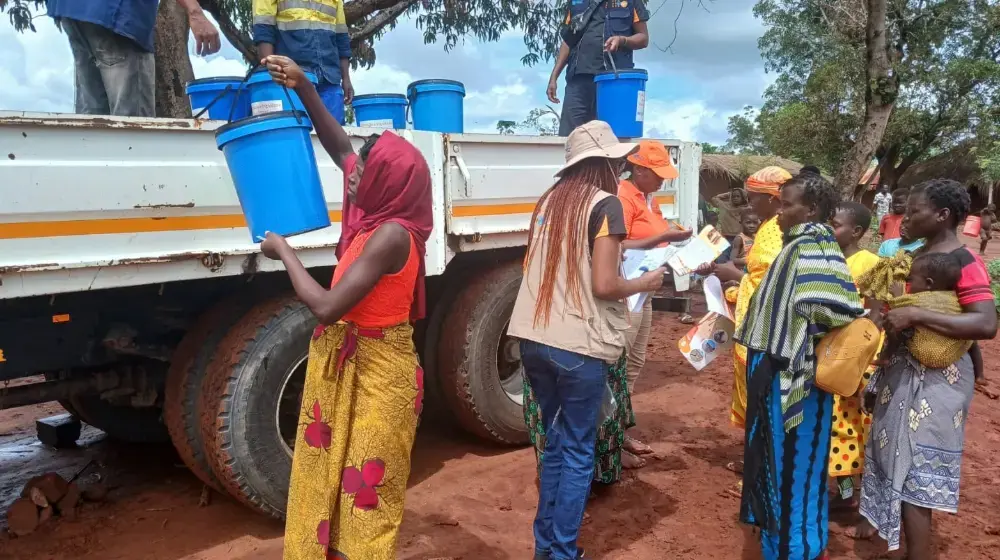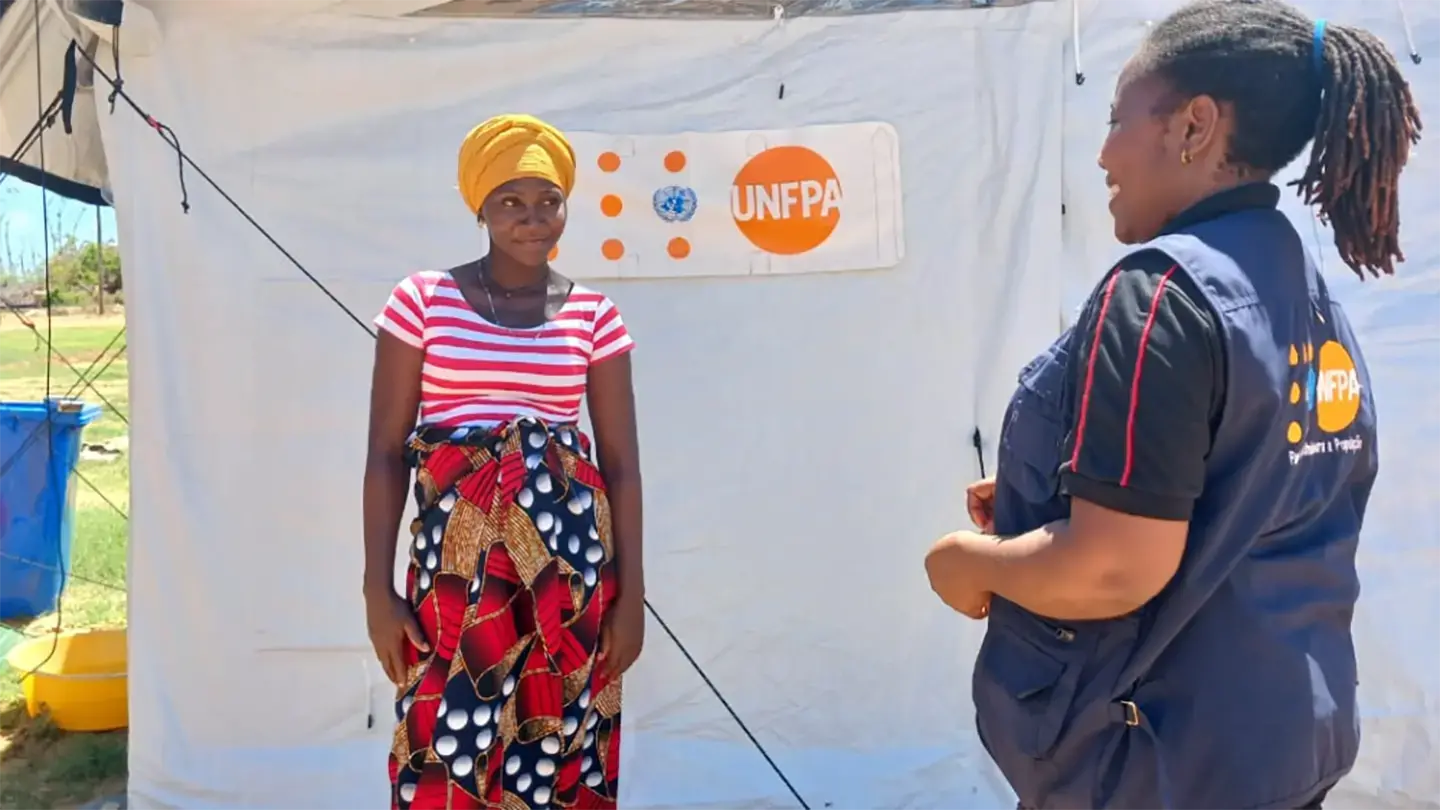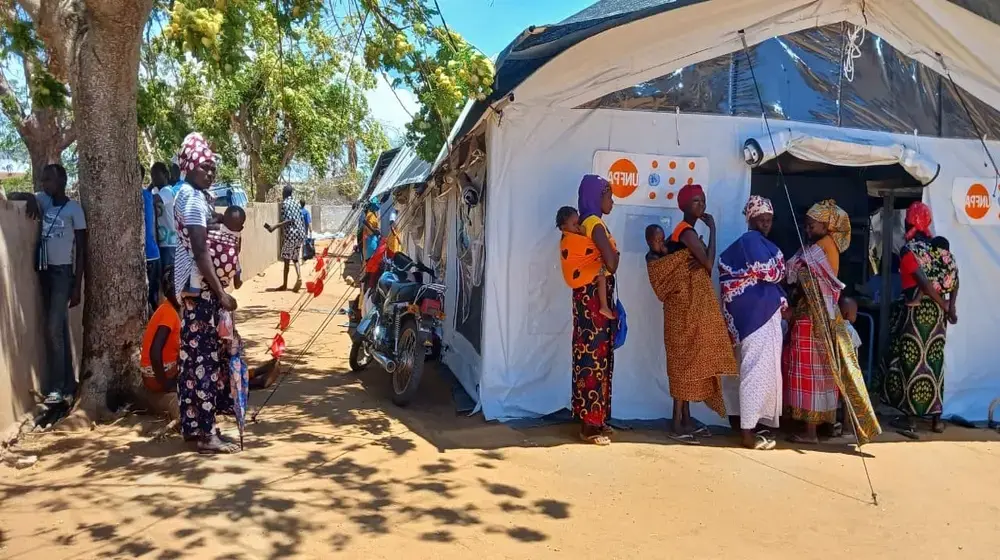Since mid-October, more than 10,000 individuals (more than half of whom are women and children) are now displaced after leaving their homes to escape violence in the northern districts, arriving on some 200 boats to the capital city of Pemba in Cabo Delgado.
In search of safety and humanitarian support, those arriving include pregnant women, who require immediate medical attention, and others who have yet to receive any ante-natal care. On a perilous sea journey from northern districts of Cabo Delgado Province that can take up to two days, some new mothers have reportedly given birth on the boats.
Those arriving by boat have landed on Paquetequete beach, a small fishing community of some 22,000 people in the city of Pemba, which has nearly tripled in size and putting a strain on available social and health services.
To address the urgent and acute needs of women and girls, including those of pregnant women and lactating mothers, UNFPA is on-the-ground supporting the Provincial and District Government to distribute Female Dignity Kits to hundreds of newly-arrived displaced women and girls and provide psychosocial counseling and support. These Dignity Kits contain essential and culturally-appropriate items to support personal and feminine hygiene, including soap, reusable menstrual pads, capulanas (traditional cloths), underwear, and more.
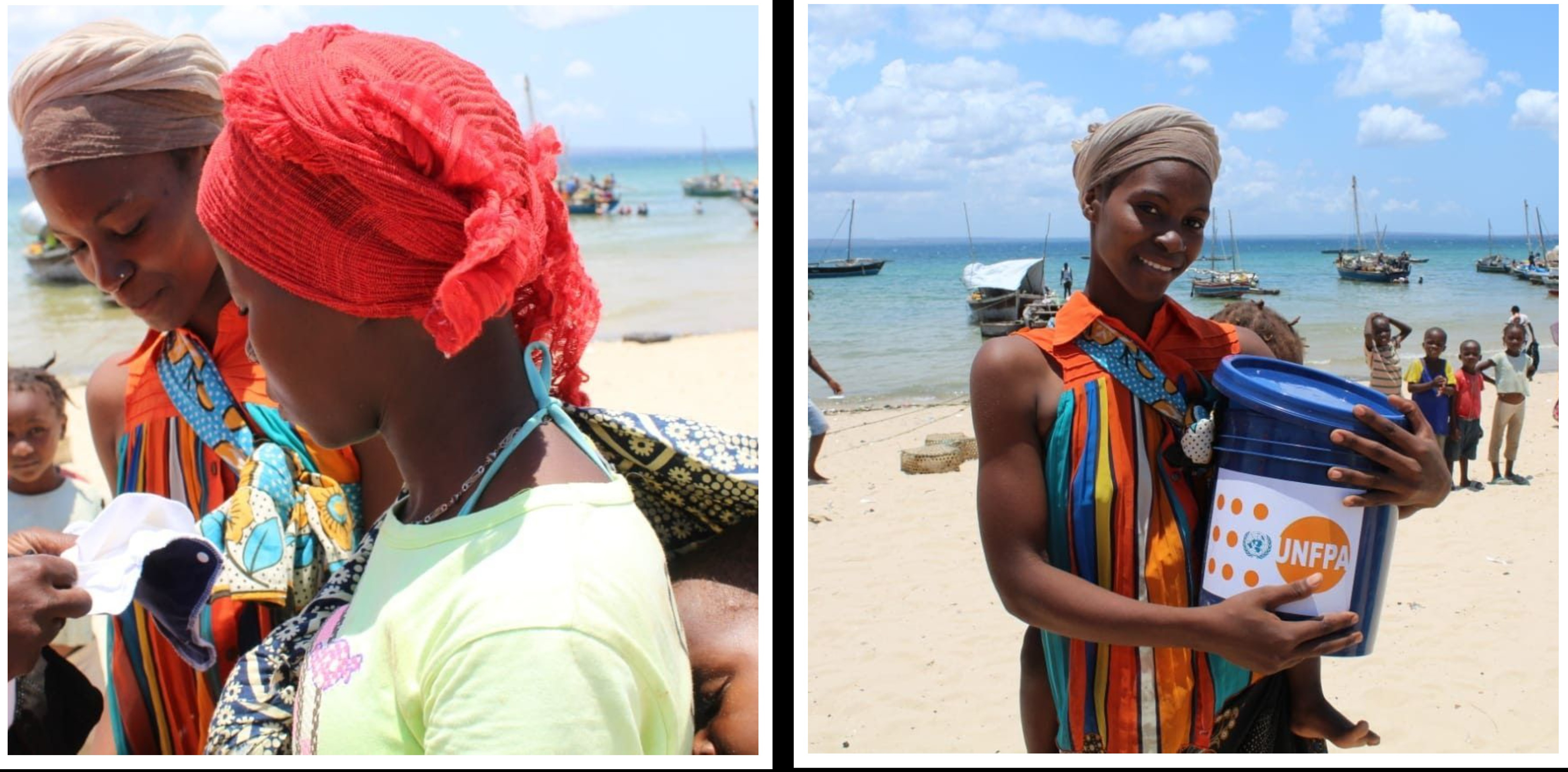
Photo: Alex Muianga/UNFPA Mozambique
Amina Daúde, 25 years old, travel by boat to Pemba with her husband and three children, and upon arrival, received a dignity kit from UNFPA. “Life is the most valuable thing I have at this moment and the Dignity Kit that I received from UNFPA greatly complements it,” she says.
“I came with nothing, nothing at all. Now, my dignity is recovered as I'll be able to have my menstrual hygiene relaxed, I'll be able to wear the capulanas and cover myself as well as wearing the masks for prevention and control of Covid-19."
Those on the move have had to leave essential personal items behind and may struggle to take adequate care of their personal health and feminine hygiene. Many others, including pregnant women and new mothers, will urgently require access to maternal health services.
Dignity kits also contain items to help women and girls mitigate their risk of gender-based violence, including a flashlight and whistle, and information on where and how to access services. As part of the distribution, UNFPA worked with the Government and social activists to educate women and girls about COVID-19 and how to avoid transmission and infection, while also distributing reusable face masks.
During conflicts, natural disasters, and public health emergencies, sexual and reproductive health needs are often overlooked – and with staggering consequences. Women and girls pay a high price in a crisis, facing increased risks of gender-based violence, unwanted and unintended pregnancies, and preventable death due to pregnancy and childbirth complications.
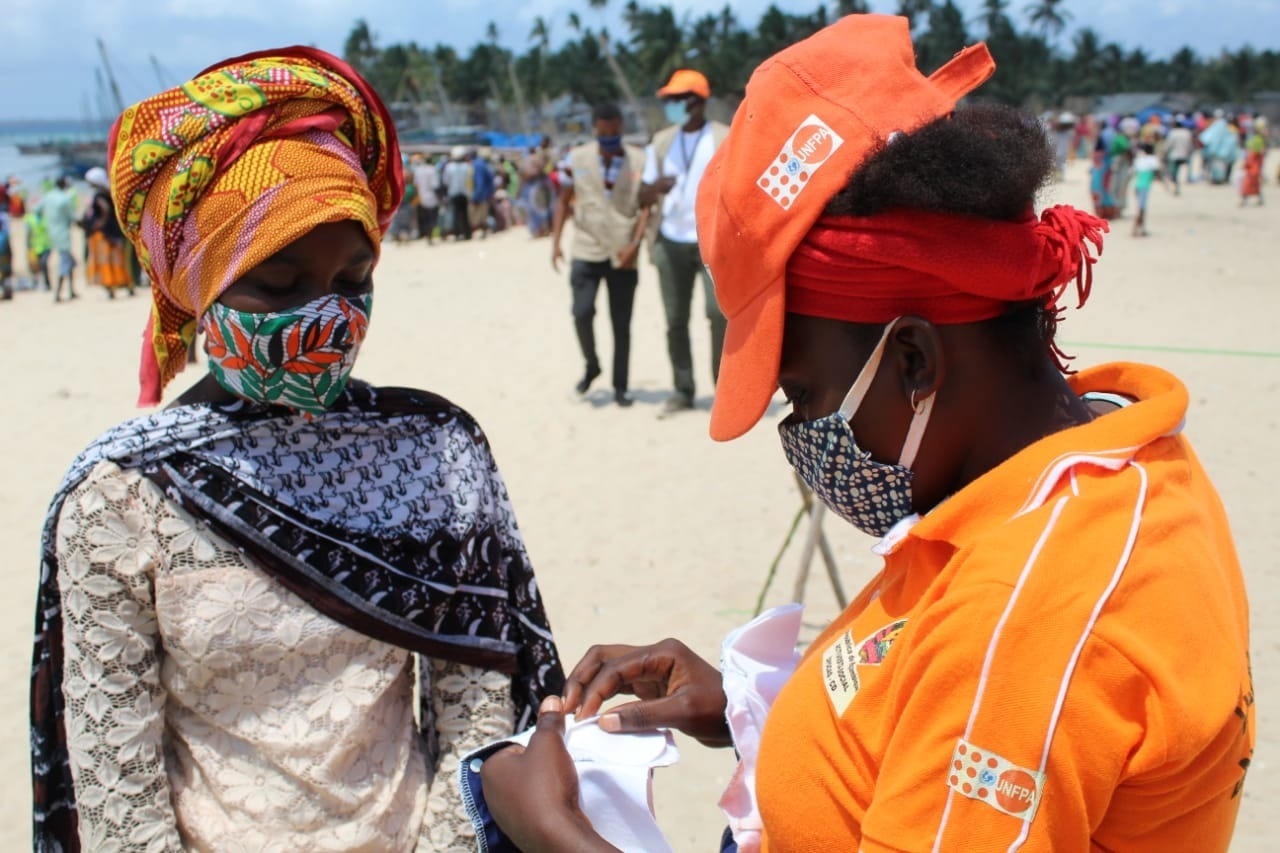
In response, UNFPA plans to distribute hundreds more dignity kits and install a separate health tent at the neighboring health center to provide emergency sexual and reproductive health and maternal health care, while adhering to COVID-19 safety measures.
To date, there are more than 350,000 people displaced across Cabo Delgado, Nampula, and Niassa provinces, including an estimated 170,000 women and 87,500 women of reproductive age (15 – 49), based on MISP calculations.
Through humanitarian-focused funding from the Governments of Canada, Norway, the Netherlands, the United Kingdom, and UN OCHA, UNFPA has worked with the Government of Mozambique to date to provide 20,000 women and girls with health and GBV services through mobile clinics, train service providers on GBV in the context of COVID-19, distribute thousands of dignity kits, and support tens of thousands of women and girls through reproductive health supplies and equipment.

Photo: Alex Muianga/UNFPA Mozambique
UNFPA Mozambique urgently requires $6 million USD in order to scale up its emergency life-saving gender-based violence and sexual and reproductive health interventions, which also include interventions to mitigate the impact of COVID-19 on women and girls. Only 20% of the required funds have been secured, leaving a funding gap of $4.8 million USD that must be mobilized within the next 6 months, enabling UNFPA to continue meeting the urgent needs of women and girls affected by the crisis in Cabo Delgado.
Written by: Dan Maina, UNFPA Humanitarian Response Coordinator, and Jessica Lomelin, UNFPA Communications and Partnerships Specialist


